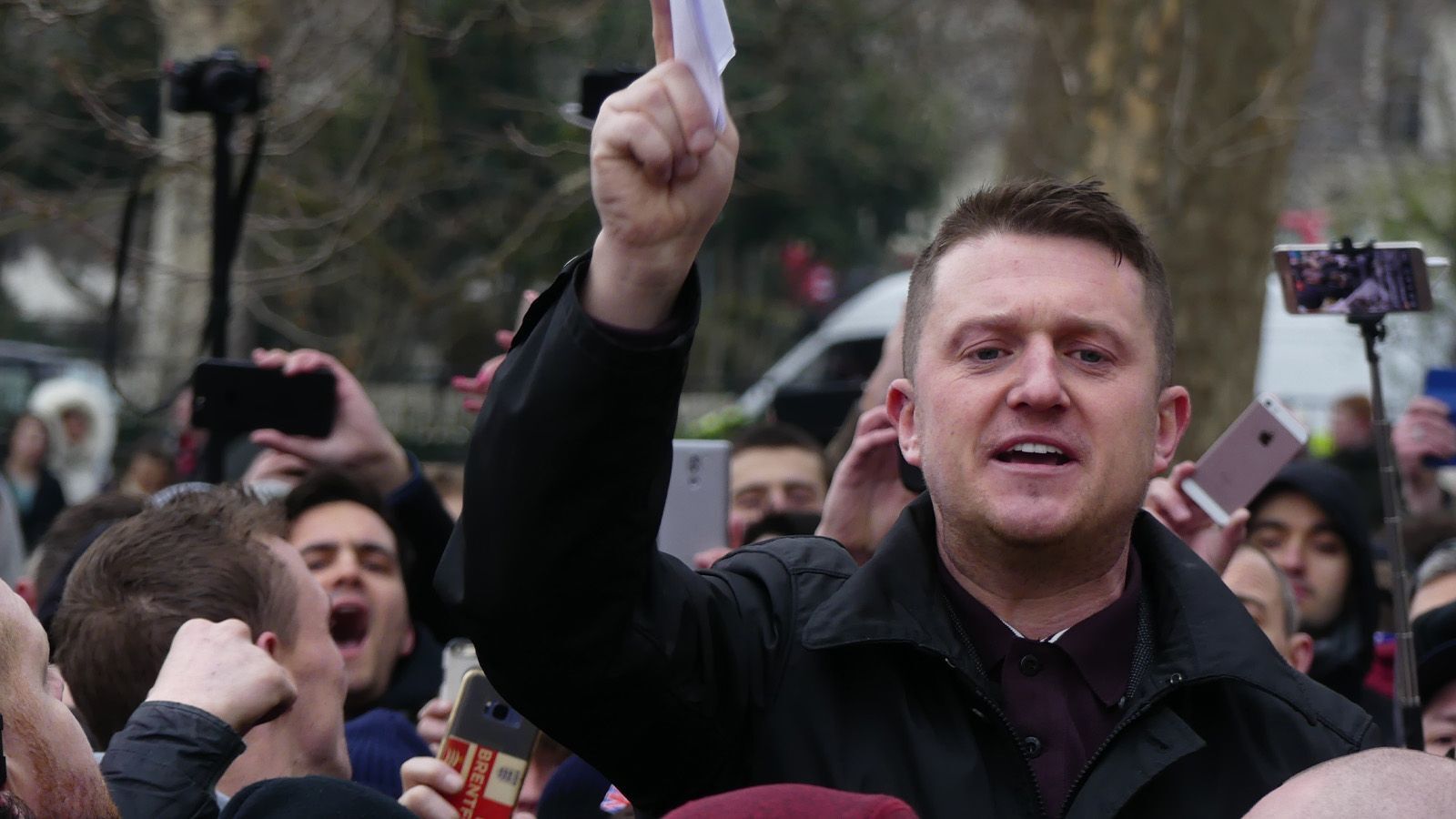
Tommy Robinson’s Trial Wraps

Trial Ends
The trial for conservative UK activist Tommy Robinson – over his refusal to provide his phone PIN to counter-terrorism police during a stop last year – ended on Tuesday.
Context
Robinson, whose real name is Stephen Yaxley-Lennon, is a former leader of the conservative English Defence League (EDL) and has become one of Britain’s most prominent anti-migration campaigners. On July 28, 2024, counter-terrorism officers stopped Robinson while he was driving a silver Bentley.
Police detained him under Schedule 7 of the Terrorism Act, which allows officers to stop anyone at UK ports to determine if they may be involved in terrorism-related activities. When asked for his phone PIN, Robinson refused, telling officers the device contained “journalistic material” and information about “vulnerable girls” he had interviewed regarding grooming gangs. Under Schedule 7, people who are detained are legally obligated to provide passwords or PINs for electronic devices.
Trial Proceedings
The trial concluded on Tuesday after Robinson pleaded not guilty to failing to comply with counter-terrorism powers. The district judge heard closing arguments from the defense and prosecution, but postponed his verdict until November 4.
A counter-terrorism officer, who was supervising that day, testified that officers became suspicious because Robinson was driving a “high-value” Bentley that wasn’t his, had not pre-booked his Channel Tunnel ticket, and avoided making eye contact. The officer said Robinson told them he was driving to Benidorm to deliver the vehicle for a friend. Prosecutors told the court that, when asked for his PIN, Robinson said, “Not a chance, bruv… You look like c*nts so you ain’t having it.” Officers also found £13,370 and €1,910 in cash, which Robinson claimed came from a collection for a rally held the previous day.
Defense Arguments
Robinson’s lawyer argued the stop may have been discriminatory against Robinson’s political beliefs and questioned whether it was lawful. He asked officers whether terrorists typically drive “high-value, high-visibility vehicles” and noted that Robinson frequently travels to Benidorm.
The defense suggested officers had targeted Robinson because of his involvement with the EDL and his political views. The supervising officer testified that Robinson’s past EDL involvement and the “emerging threat level” from conservative groups had been factors in the decision to stop him.
Verdict Delay
Before entering court, Robinson claimed in a video that billionaire Elon Musk was covering his legal expenses, describing the case as “state persecution.” Musk has not publicly confirmed this support, though he has emerged as an ally of Robinson and recently appeared via video link at one of his rallies.
Robinson’s lawyer told the court his client would be visiting Israel as “a guest of the Israeli government” from October 15 until October 25. The judge accommodated Robinson’s travel plans, postponing the verdict until November. If found guilty, Robinson could face up to three months in jail and a £2,500 fine.



